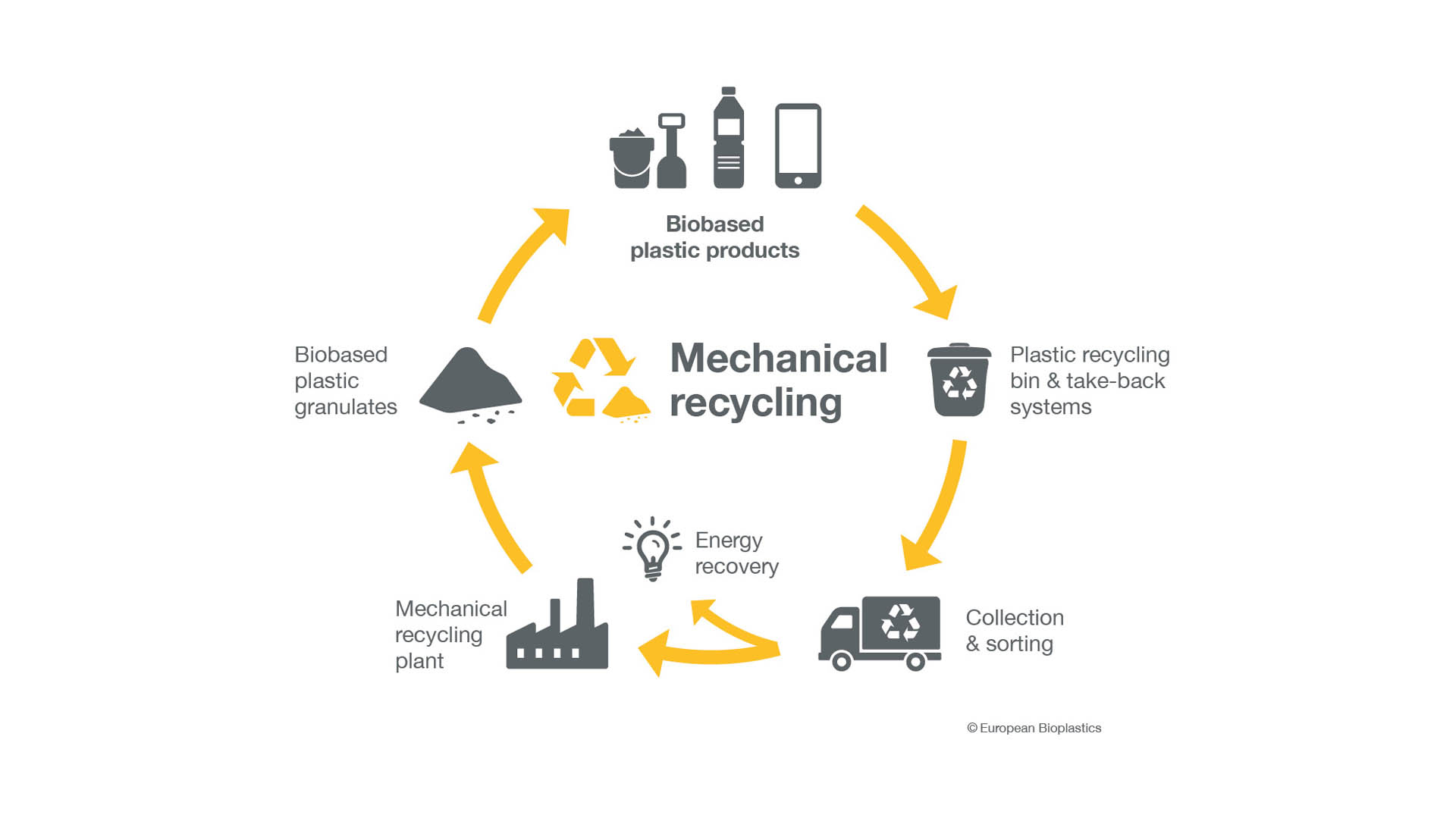Mechanical recycling
A large share of bioplastics produced today is mechanically recyclable. Biobased plastics that are chemically and physically identical to their fossil-based counterparts but made from biomass instead of fossil-based sources, are called drop-in materials, such as biobased PE or biobased PET. The only difference to their fossil-based equivalents is that the polymers are wholly or partly derived from biomass and feature a significantly lower carbon footprint than their conventional fossil-based alternative. The products made from these materials can be recycled in already well-established recycling streams alongside their fossil-based counterparts.

Besides these drop-ins, there are other biobased plastics that can also be mechanically recycled, such as PLA, or PEF. Separating them from other plastics in the waste stream is technically feasible and in place today with the NIR (near infra-red) sorting technologies used throughout the EU.
Biodegradable polymers in mechanical recycling
Biodegradable plastics (PLA, PBAT, PHAs, etc) do not affect the recycling or recyclability of other plastic waste streams, as long as they are sorted accordingly.
Efficient sorting of all plastics can be performed with existing NIR equipment at sorting/recycling facilities as long as the respective spectra libraries for those plastics are used.
Find out more in our position paper on end-of-life options for bioplastic products.
